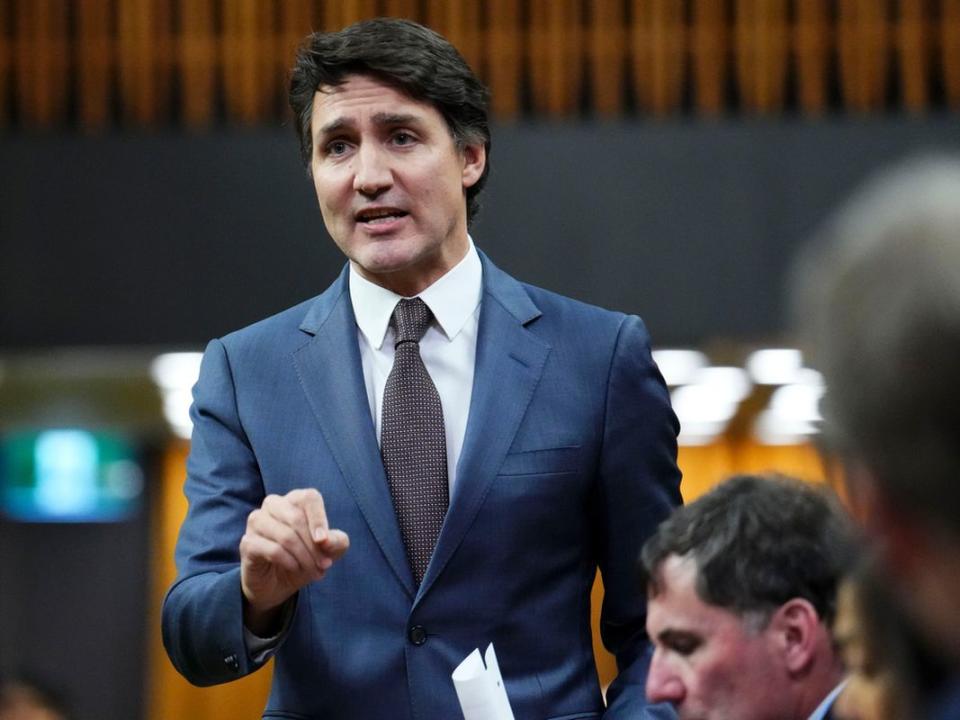Matthew Lau: $160 billion says Trudeau doesn't buy his own carbon tax pitch

Prime Minister Justin Trudeau says climate change is an “existential crisis” and the carbon tax is “the most effective way” to fight it. But he never tires of spending billions of taxpayers’ dollars in ways that show he doesn’t really believe what he says.
His government boasts it has committed over $160 billion to climate spending since 2015. That’s $160 billion to what are, by the prime minister’s own labelling, relatively ineffective ways to fight an existential crisis. A reasonable person might wonder how this makes sense. There is no need to wonder too much. The answer is: Trudeau believes that both invoking climate apocalypse and wasting $160 billion so unaccountably will increase the Liberals’ votes among people who will either receive the money or are, for whatever reason, impressed by climate alarmism and reassured by government control.
There is no rhyme or reason to the Trudeau government’s climate spending. It will spend massive sums on anything and everything in the name of climate change, from $104 million for home energy efficiency subsidies in British Columbia to a new project costing over $20 million “that will focus on improving gender-responsive and climate-resilient agricultural practices” in Tanzania, to take two examples just from last week. What “gender-responsive and climate-resilient agricultural practices” in Tanzania are the Liberals did not explain. How gender-responsive Tanzanian climate action will benefit Canadian taxpayers who are being made to pay more than $20 million for it, they did not say, either.
Are there such things as “gender-unresponsive” climate-resilient agricultural practices? How do agricultural practices, climate-resilient or not, “respond” to gender anyway? And if climate change is an existential crisis, as the prime minister says, doesn’t that mean it will wipe everyone out, regardless of gender? In which case, why does a policy trying to fight climate change have to consider gender at all?
A week before the Tanzanian announcement, the Trudeau government committed over $1 million to “Ontario Tender Fruit Growers to develop climate resilient fruit varieties” — though on this occasion without mention of gender responsiveness. Do the Liberals care more about the gender responsiveness of taxpayer-funded climate-resilient agriculture in Tanzania than about the gender responsiveness of taxpayer-funded climate-resilient peaches, pears and apricots in Ontario? A better question: why are taxpayers paying for either of these two programs to begin with?
Another Trudeau government climate spending announcement, this one two weeks ago, was for $1 million to reduce the Children’s Hospital of Eastern Ontario’s (CHEO) carbon footprint. Government funding of hospitals is nothing extraordinary but possibly the money could have been put to better use providing actual medical care. According to the provincial government’s latest data, CHEO patients spend 15.6 hours on average in the emergency department before being admitted to hospital. Only 24 per cent of patients are admitted to hospital from emergency within the target time of eight hours. The other 76 per cent of patients suffering excessive wait times in emergency may at least be comforted by the knowledge that the Trudeau government is greatly concerned with reducing the hospital’s carbon footprint.
The day after the hospital announcement, the Liberals announced two more climate spending initiatives: $1.4 million for 13 electric vehicle chargers in Prince Edward Island and a handout of up to $11 million to Glencore Canada Corporation for battery-powered equipment for a mining project in Ontario. “This investment in Glencore Canada Corporation’s project to cut pollution,” Environment and Climate Change Minister Steven Guilbeault said, “demonstrates the Government of Canada’s commitment to fostering innovative climate solutions and collaborating with Canada’s industrial sectors as we build a low-carbon world.”
What he really must have meant is that it demonstrates the Liberal government’s commitment to central planning and wasting taxpayers’ money. Just two months ago, in insisting that his fifth annual carbon tax increase (to $80 per tonne) must go through, Trudeau defended the carbon tax on the grounds that it is better than using “the heavy hand of government through regulations or through subsidies or some other way to pick winners and losers in the economy.” If Trudeau practiced what he preaches, Canadians — of both genders — could have saved a cumulative $160 billion.
Financial Post
Matthew Lau is a Toronto writer.

 Yahoo Finance
Yahoo Finance 